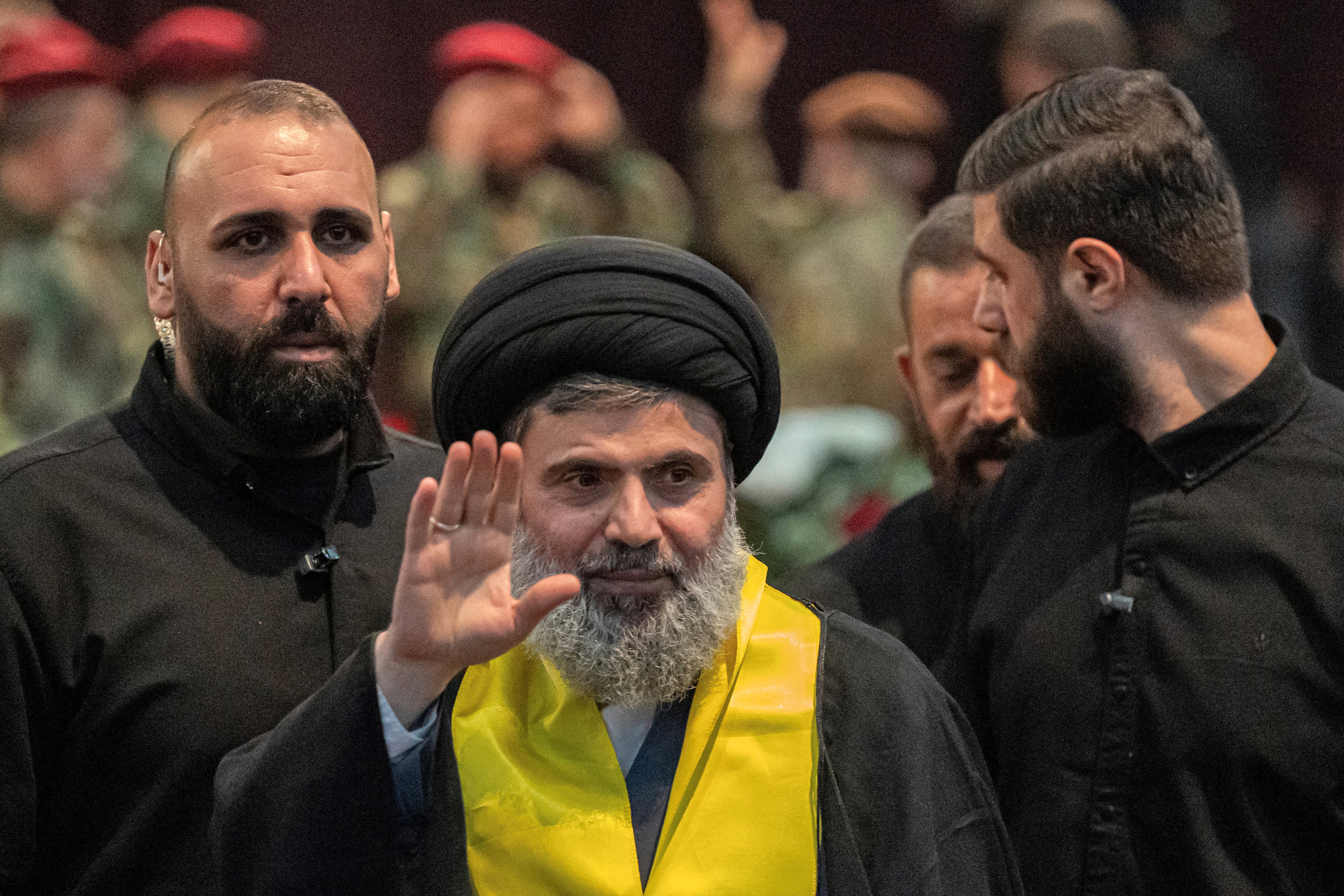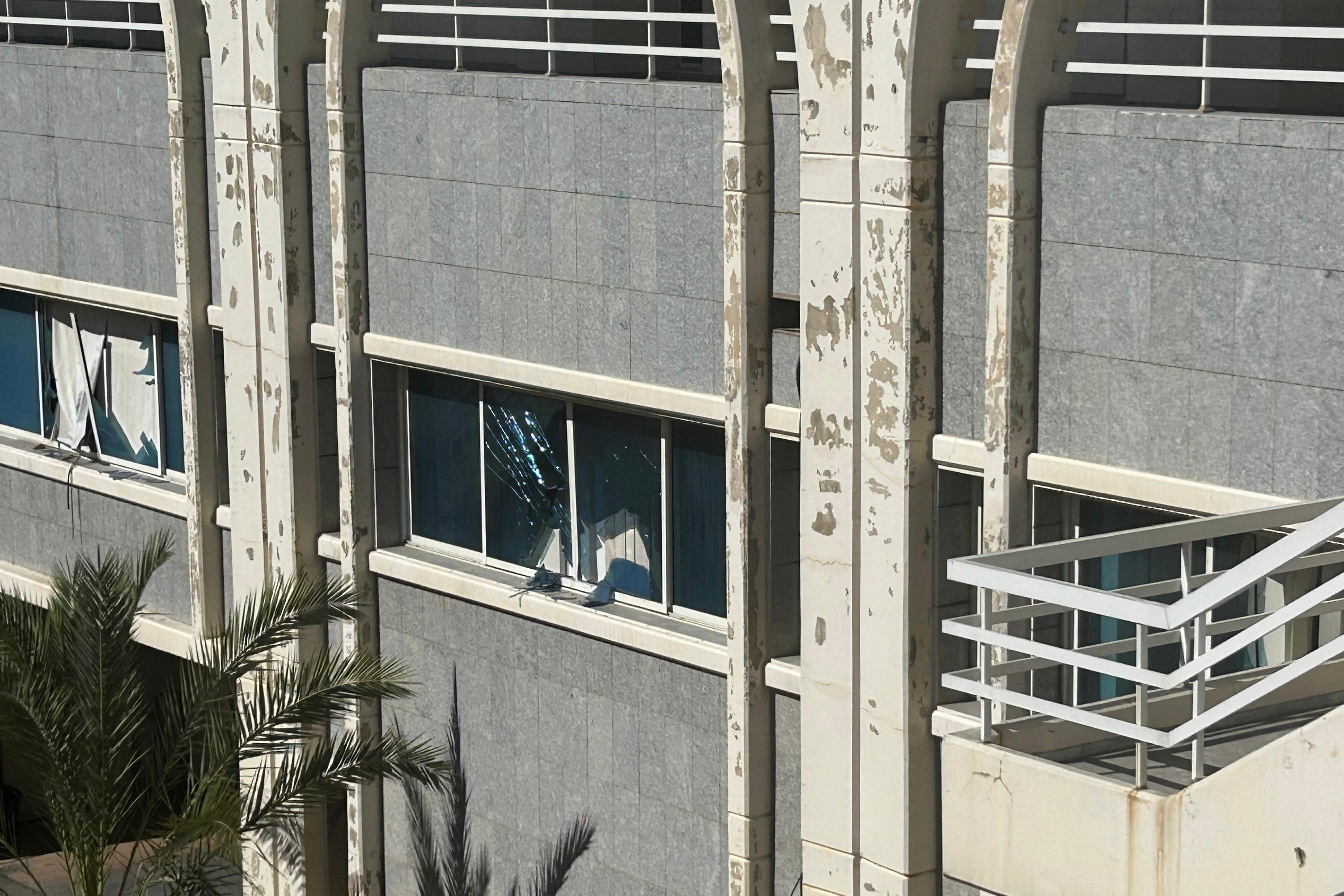Israel confirms killing Hezbollah successor Hashem Safieddine in Beirut airstrikes
Israel’s military also announced it killed three Hezbollah commanders and around 70 fighters in southern Lebanon over past 48 hours
Your support helps us to tell the story
From reproductive rights to climate change to Big Tech, The Independent is on the ground when the story is developing. Whether it's investigating the financials of Elon Musk's pro-Trump PAC or producing our latest documentary, 'The A Word', which shines a light on the American women fighting for reproductive rights, we know how important it is to parse out the facts from the messaging.
At such a critical moment in US history, we need reporters on the ground. Your donation allows us to keep sending journalists to speak to both sides of the story.
The Independent is trusted by Americans across the entire political spectrum. And unlike many other quality news outlets, we choose not to lock Americans out of our reporting and analysis with paywalls. We believe quality journalism should be available to everyone, paid for by those who can afford it.
Your support makes all the difference.Israel has confirmed the killing of Hashem Safieddine, a high-ranking Hezbollah leader and presumed successor to Hassan Nasrallah, in an airstrike on southern Beirut in early October.
Safieddine was the head of Hezbollah’s executive council and a key political figure.
The Iran-backed group confirmed the death of Safieddin, a day after the Israeli military announced that the airstrikes in the Dahiyeh suburb had killed Safieddine and Ali Hussein Hazima, the head of Hezbollah’s intelligence branch, three weeks earlier.
The airstrike also killed 25 other leaders, Israel had claimed.
Hezbollah said it was mourning the death of Safieddine, who was a "great leader and a great martyr" and lived an "honourable life".
The group said Safieddin had "joined his brother, our most noble and precious martyr" Nasrallah.
This blow to Hezbollah’s leadership comes amid escalating fighting between Hezbollah and Israel, with ongoing airstrikes and clashes along the Israel-Lebanon border.

Israel reportedly killed Safieddine on 3 October by dropping 73 tonnes of bombs on Dahiyeh in an attack similar to the bunker-buster bombs that killed Nasrallah a week earlier.
Hezbollah said despite the loss its members “pledge to our great martyr and his martyr brothers to continue the path of resistance and jihad until achieving its goals of freedom and victory”.
Following Safieddine’s death, Naim Qassem, Hezbollah’s deputy secretary general, is now the sole remaining member of the group’s public-facing senior leadership. Qassem has represented Hezbollah since Nasrallah’s assassination but lacks the widespread popularity that the former secretary general commanded among supporters.
“We reached [Hassan] Nasrallah, his replacement, and most of Hezbollah’s leadership. We will know how to reach anyone who threatens the security of Israel’s citizens,” Israel Defense Forces (IDF) Chief of Staff Lt Gen Herzi Halevi said in remarks provided by the military, according to The Times of Israel.
A source close to Hezbollah told AFP in early October that Safieddine was considered the “most likely” candidate for the party’s leadership.

Israel’s military also announced that it killed three Hezbollah commanders and around 70 fighters in southern Lebanon over the past 48 hours, following the confirmation of the death of Safieddine.
The IDF said they are conducting targeted raids against Hezbollah’s infrastructure.
At least 1.2 million Lebanese people have been displaced so far and over 2,500 deaths have been recorded, including 63 in the last day alone.
The conflict between Hezbollah and Israel began after Hezbollah fired rockets into Israel on 8 October 2023 in “solidarity” with Hamas’s attack on Israel the day before. Hostilities have sharply intensified since Israel launched “Operation Northern Arrows” against Hezbollah in Lebanon on 23 September.
Last week, Israel targeted and killed Yahya Sinwar, the leader of Hamas, in Gaza.
On Monday night, Israeli strikes on Greater Beirut killed 18 people, including four children and injured 60 in a strike in Dahiyeh.
US secretary of state Antony Blinken urged Israeli prime minister Benjamin Netanyahu to use the recent killing of Hamas leader Yahya Sinwar to secure the release of hostages from the 7 October Hamas attack and to consider ending the war in Gaza.
During his 11th visit to the Middle East since the conflict escalated, Mr Blinken also aimed to address rising tensions in Lebanon.
Mr Netanyahu indicated that Sinwar’s death might aid in the hostages’ return and help achieve war objectives. However, there was no mention of a ceasefire, despite the severe devastation in Gaza, where military capabilities have diminished and most of the 2.3 million residents have been displaced.

Join our commenting forum
Join thought-provoking conversations, follow other Independent readers and see their replies
Comments